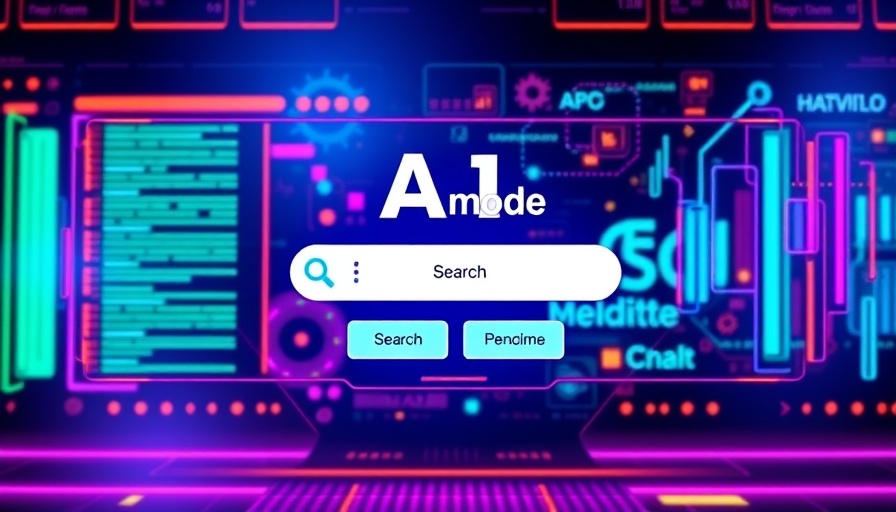
Understanding Google AI Mode: A Game Changer for Digital Marketing
The introduction of Google's AI mode presents an exciting shift in how we interact with search engines. Instead of receiving one standard answer to queries, users can now access multiple perspectives from different sources. This new feature isn't just a minor tweak; it's a fundamental change with far-reaching implications for professionals, business owners, and marketers.
Why This Matters for Marketers
As marketers, our goal is to meet potential customers where they are, providing the information they seek. With Google's AI mode, the way we strategize content must adapt. The algorithm's evolution signifies more than just different sources—it's an opportunity to enhance our digital marketing strategies.
For instance, understanding that users may see varied sources means optimizing for voice search, focusing on comprehensive content that addresses multiple viewpoints, and ensuring our SEO practices reflect this change.
Historical Context: Evolution of Search Algorithms
To appreciate the significance of Google AI mode, we need to understand where we came from. Google search algorithms have continuously evolved from basic keyword matching to understanding user intent and context. This latest update is one of the most substantial shifts, mirroring similar trends in the marketing landscape.
Previously, marketers invested heavily in creating content that matched specific keywords. Now, the focus shifts to creating authoritative, in-depth coverage that can potentially appear among various sources of information. This evolution highlights the need for adaptability in our strategies.
Future Predictions: Embracing AI in Digital Marketing
As technology advances, we can anticipate that tools leveraging AI will become more common in digital marketing. These tools offer insights into customer behavior and help refine marketing automation strategies, ultimately enhancing user engagement and conversion rates.
By embracing AI, businesses can deliver more personalized content, improving customer experiences and their overall satisfaction with the brand. As more companies integrate AI-driven tools, marketers must stay informed about the latest developments to remain competitive.
Practical Insights: Adapting Your Content Strategy
With the evolution of search influenced by AI, here are some practical tips for adapting your content strategy effectively:
- Diversify Content Sources: Aim to create content that draws upon various sources for credibility and depth.
- Focus on User Intent: Analyze what users are looking for when they engage with your content, and tailor your strategy accordingly.
- Employ Enhanced SEO Techniques: Optimize for voice searches and featured snippets to ensure visibility across various query results.
Monitoring Success: Analyzing User Engagement
Understanding the efficiency of your newly adjusted strategy hinges on how well you monitor user engagement. Tools like Google Analytics can provide insights into how users interact with the new AI-generated results. This data can help pivot your strategies effectively by revealing which types of content resonate best with your audience.
The Role of AI in Brand Awareness Techniques
AI's gathering of diverse sources can substantially enhance brand awareness. By aligning your brand messaging with the needs and interests of your audience, you can build a comprehensive marketing funnel that draws customers in and retains their interest.
Today's marketing landscape demands that we utilize AI tools in our branding strategies—pushing boundaries and exploring new avenues to amplify visibility and user engagement.
Conclusion: Look Ahead
The transition into Google’s AI Mode is more than an adjustment; it's an invitation to innovate. As digital marketers, the onus is on us to harness this tool's potential, ensuring we evolve along with the changing landscape. It's time to embrace the opportunities ahead by refining our strategies and staying adaptive to the multifaceted nature of online engagement.
 Add Row
Add Row  Add
Add 




Write A Comment